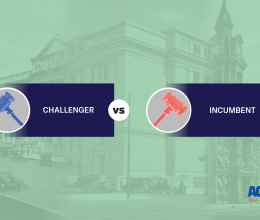The RNC is barely underway and civil liberties are already at the forefront of the discussion.
Following the tragic shooting of police officers in Baton Rouge, the Cleveland Police Patrolmen’s Association sent a letter to Governor John Kasich requesting that he outlaw open-carry in Cuyahoga County until after the RNC is over. Governor Kasich responded that he did not have the power to arbitrarily suspend federal and state constitutional rights.
What’s Logical, and What’s Legal
The ACLU’s longstanding position on the Second Amendment is that gun ownership can be subject to reasonable restrictions, just like our other fundamental rights such as speech and assembly. In regards to the convention in Cleveland, it defies logic that a whole host of items like string, tennis balls and canned goods, would be banned within the “event zone” because they could be weaponized, but actual weapons would be allowed. Having people walking around with weapons in a crowded place makes the job of law enforcement that much more difficult.
However, Governor Kasich’s refusal to unilaterally suspend constitutional rights for security concerns is likely a positive move – if he had assented to the request, it may have set a precedent for future unilateral decisions that would have restricted other individual liberties. Instead, Governor Kasich called for the “bonds between our communities and police [to] be reset and rebuilt – as we’re doing in Ohio.”
But are we?
The Deeper Issue
The Cleveland Police are still under DOJ supervision for its “pattern or practice of using excessive force in violation of the Fourth Amendment.” The Governor’s Task Force on Community-Police Relations, quickly formed after the death of Tamir Rice in Cleveland and John Crawford III in Beavercreek, completed its work after less than six months of study. Its recommendations, published over a year ago, have not been codified in state law.
In particular, the Task Force’s call for more oversight and an independent review panel for police-involved uses of deadly force has not been heeded by the Ohio General Assembly. House Bill 380, which could improve investigation of use of deadly force by police, has thus far died in the House Judiciary Committee, despite bipartisan support.
If we as a state are truly to rebuild the bonds, the Governor’s office and the state legislature need to take meaningful steps toward reform, including passing needed legislation to move us closer to that goal.









